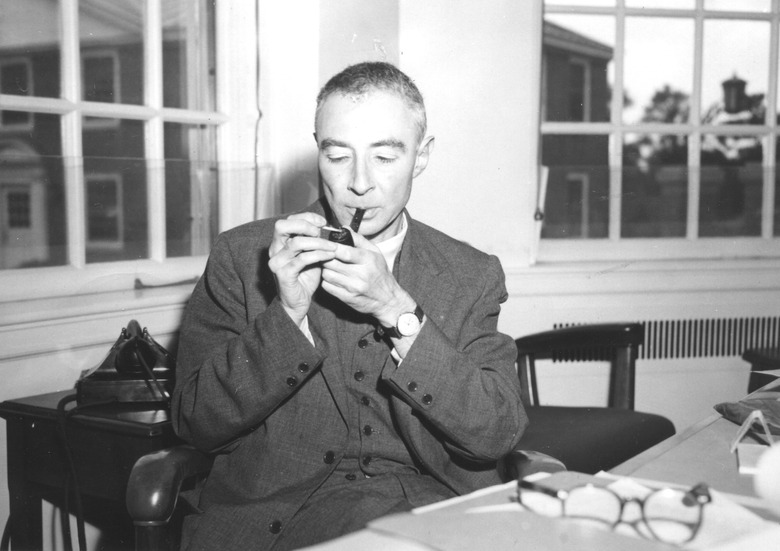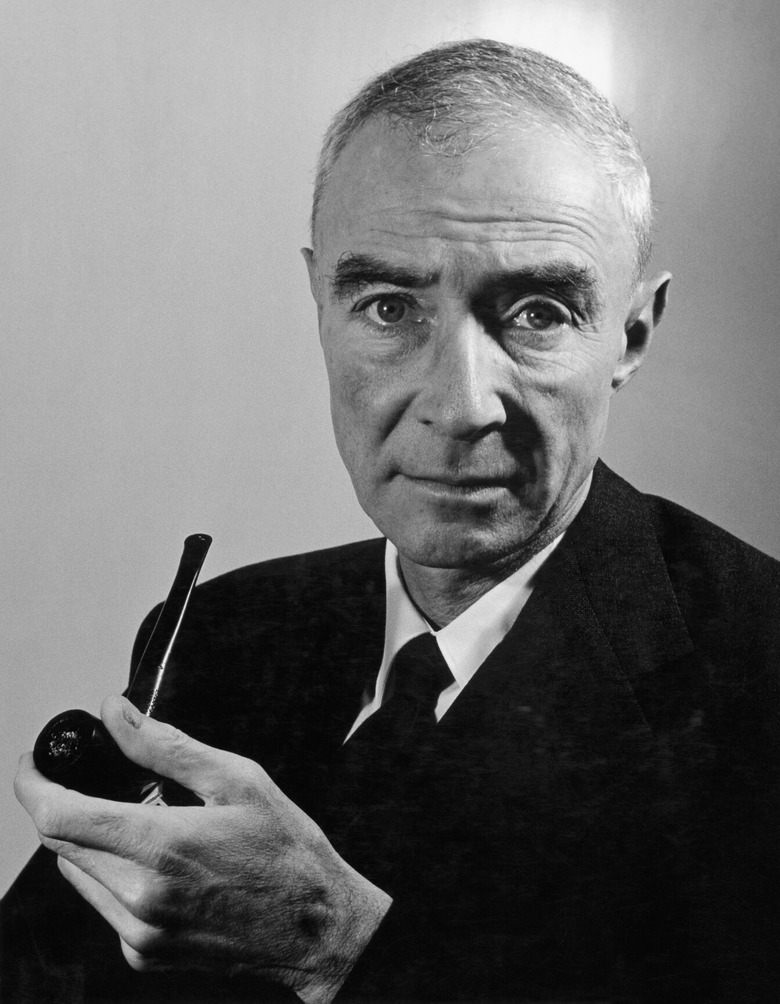Ahead Of Christopher Nolan's Oppenheimer, I Can't Recommend These Two Documentaries Enough
J. Robert Oppenheimer, the brooding and brilliant physicist who led the creation of the atomic bomb, has always seemed to me the personification of an unsettling paradox. We all certainly know that as a result of his life's work — dramatized in director Christopher Nolan's upcoming feature film Oppenheimer — tens of thousands of Japanese civilians were more or less vaporized in an instant, while others died in all sorts of horrific ways including from radiation exposure. On the other hand, many more lives were also saved due to those same two atomic bomb detonations that brought World War II to a swift close.
If ever a man's life cried out for a thoughtful analysis of the relationship between ends and means, it was that of the scientist who let the atomic genie out of the bottle — the same Los Alamos laboratory director who found his thoughts wandering to the text of the Bhagavad-Ghita upon surveying the first successful test of the bomb in July 1945. "Now I am become death," Oppenheimer is said to have thought to himself. "The destroyer of worlds."
To End All War: Oppenheimer & the Atomic Bomb
Early reviews of Nolan's Oppenheimer biopic, which stars Cillian Murphy in the title role and hits theaters on July 21, are already downright rapturous, describing the 3-hour film as perhaps the director's best work yet. Nolan's is one of the most highly anticipated movies of the summer — and, perhaps because of that fact, you can also see the director offering his commentary in a newly released NBC News Studios documentary about Oppenheimer. One that, in my opinion, is actually a perfect complement to Nolan's film.
To End All War: Oppenheimer & The Atomic Bomb is available to stream right now via Peacock as well as Hulu, and I loved everything about it — from the fascinating audio and video footage of Oppenheimer included throughout to the top-notch animation and visual effects. The scientists who provide commentary also break down the physics and the technical challenges associated with the secretive Manhattan Project in layman's terms.
Moreover, this NBC News Studios release also filled in some gaps in my knowledge of Oppenheimer, like how the man who arguably helped win WWII eventually found himself targeted by US Sen. Joe McCarthy during the so-called Red Scare. Definitely check this documentary out, if you get a chance, before venturing to the cinema to watch Oppenheimer.
The Fog of War
My one complaint about what NBC News Studios produced is that it doesn't spend a lot of time grappling with the ethics of the bomb. There's a lot of grave intoning about how the world changed in an instant and how we can never go back to the way things were before, but the moral implications don't factor front and center here as much as I'd have liked them to.
I get it, though, because the focus of the project is clearly biographical — which is what makes this second documentary I'm recommending for Oppenheimer audiences (2017's The Fog of War) such essential viewing.
If To End All War: Oppenheimer & The Atomic Bomb is all about the man, The Fog of War deals in large part with what that man hath wrought. The latter is by and large an extended interview with former US Defense Secretary Robert McNamara, a key architect of US military policy during the Vietnam War who rails against military interventionism — and the world-ending potential of nuclear conflict.
Were we justified in dropping those two bombs during WWII? The US has never been accountable for it. And yet, McNamara posits that our leaders most certainly would have been tried for war crimes had we lost. So why is dropping the bomb okay when we win, but not if we lose? Furthermore, during one of the most chilling points of The Fog of War (which won an Academy Award for Best Documentary), McNamara gets at perhaps the most chilling aspect of Oppenheimer's work:
Harkening to a tried and true bit of conventional wisdom, McNamara offers the reminder that we should always try and learn from our mistakes. Never make the same mistake twice. Oppenheimer's creation, however, removes that potential from the equation. Miscalculate and drop the bomb, and there's no do-over. There's no second chance, no lesson learned. At that point, we're more or less at game over.


